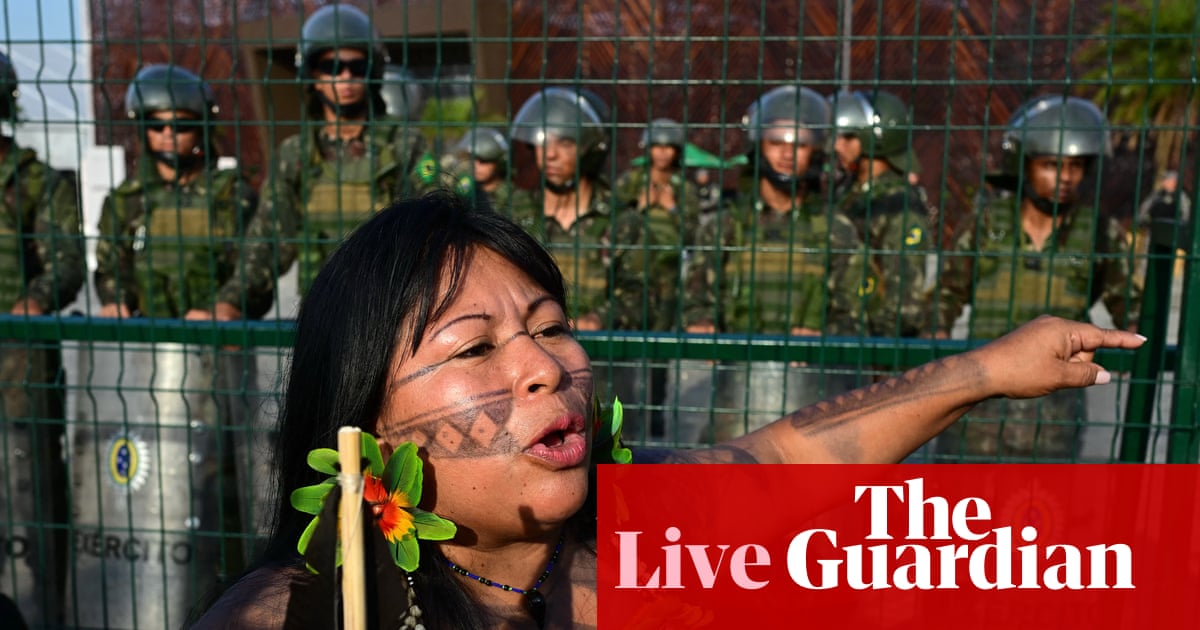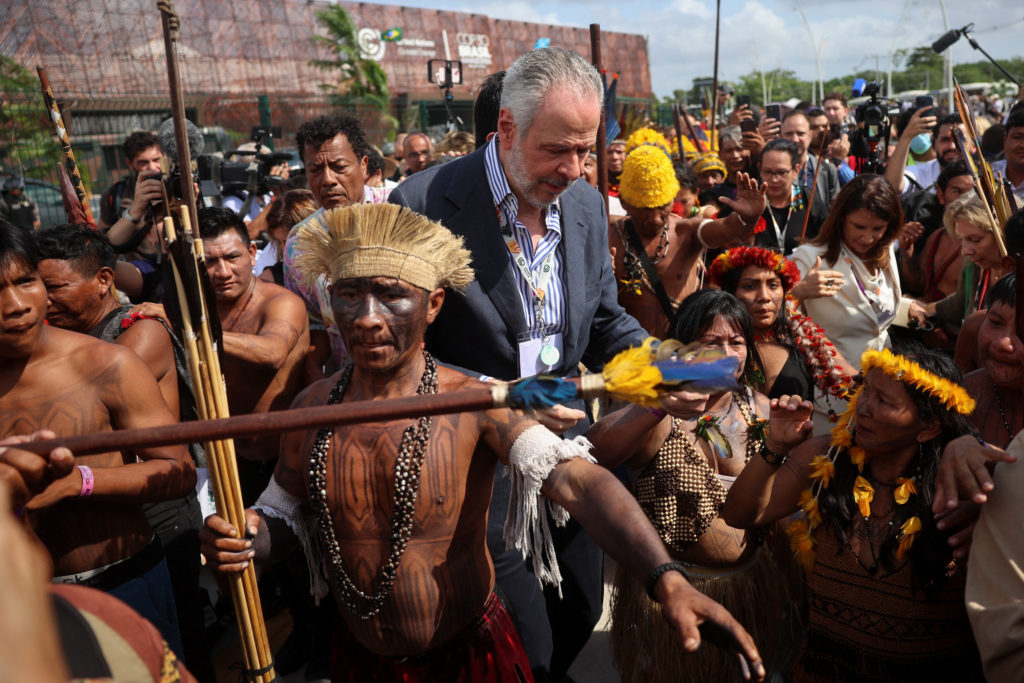Indigenous Protesters Block COP30 Entrance in Brazil Demanding Land Rights and Environmental Protection
Indigenous groups, primarily Munduruku, blocked the COP30 climate conference entrance in Brazil, demanding President Lula address land rights and halt river development.
Overview
- Approximately 100 Indigenous protesters, mainly from the Munduruku group, blocked the main entrance to the COP30 climate conference in Belem, Brazil.
- The demonstration lasted for 90 minutes, causing conference participants to be rerouted and delegates to enter through an alternative door.
- Protesters demanded a meeting with President Luiz Inácio Lula da Silva to discuss the plight of Indigenous peoples and clarify their territories.
- Key demands included halting commercial river development and ensuring the protection of Indigenous lands from further exploitation.
- The COP president, do Lago, engaged with the group's representatives for over an hour, listening to their concerns regarding environmental and land issues.
Report issue

Read both sides in 5 minutes each day
Analysis
Analysis unavailable for this viewpoint.
Articles (5)
Center (0)
No articles found in the Center category
FAQ
The Munduruku are an Indigenous group in Brazil who primarily participated in the COP30 protest to demand recognition and protection of their land rights and to halt commercial river development that threatens their territory and cultural survival.
Protesters demanded a meeting with President Lula to discuss the recognition and demarcation of Indigenous territories, halt commercial river developments, and ensure protection of Indigenous lands from exploitation, reflecting ongoing struggles against laws limiting their land rights and threats from mining and logging.
The 'Marco Temporal' is a controversial legal doctrine attempting to restrict Indigenous land rights to areas occupied at the time of Brazil’s 1988 Constitution, which has been opposed by Indigenous groups like the Munduruku and was ruled against by Brazil's Supreme Court but remains politically contested.
Recent actions include Brazil's Supreme Court ruling against the Marco Temporal doctrine, federal legislation attempting to override this ruling, ongoing federal operations removing illegal miners from Munduruku lands, and delays in land demarcation despite constitutional guarantees and recommendations to protect Indigenous territories such as the Sawré Muybu land.
The government has conducted a coordinated operation involving multiple federal agencies to remove illegal miners and dismantle mining infrastructure, while the Munduruku and allied Indigenous organizations have consistently protested, documented invasions, and demanded stronger protections and alternative economic opportunities to halt such incursions.
History
- This story does not have any previous versions.




